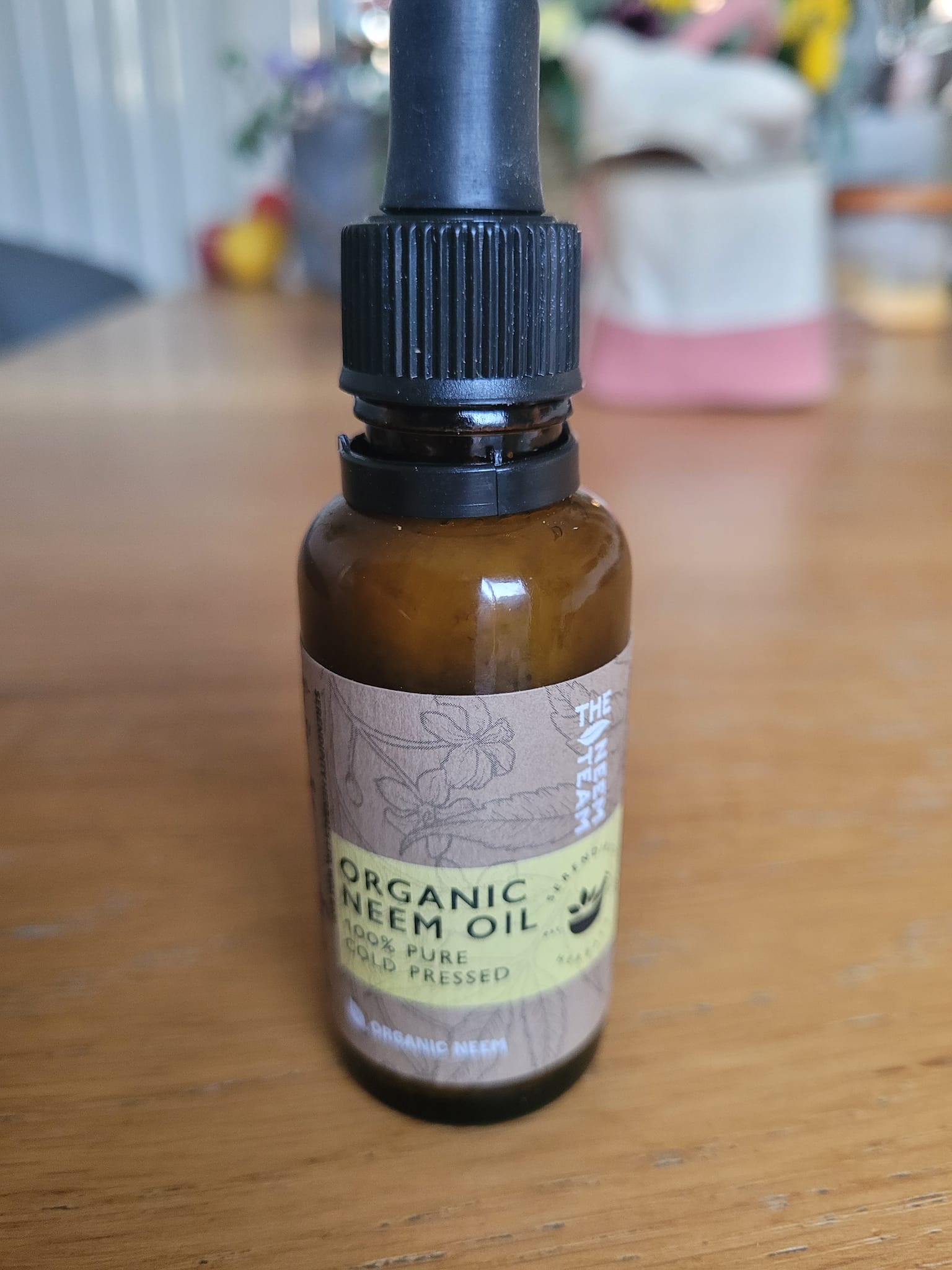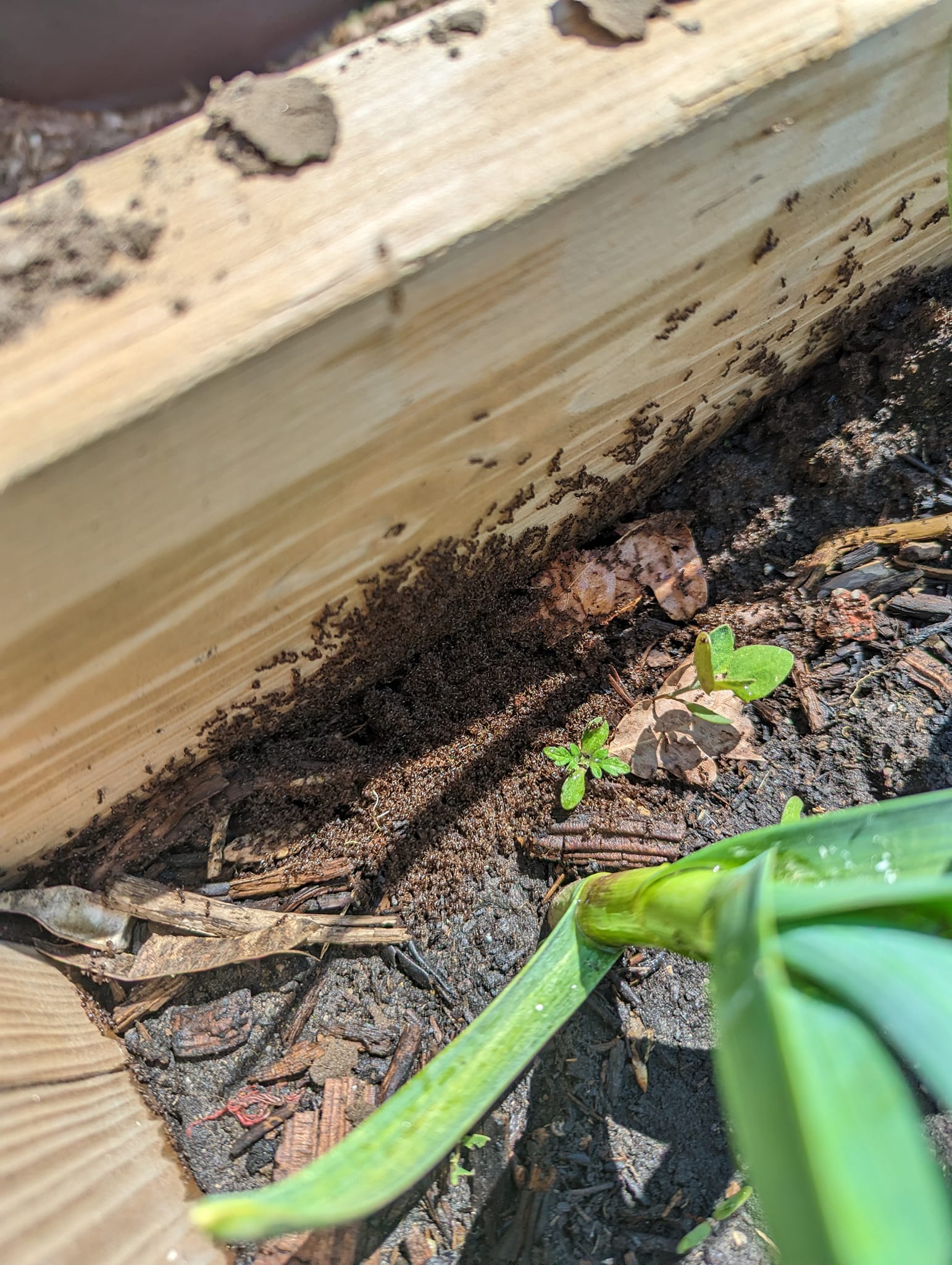Are there more hardworking insects than ants out there? Probably not. These little creatures improve drainage and soil aeration, but despite all the good they can do for your yard, they can also be destructive.
Ants can harm your plants and cause structural damage, so you must deal with them. You can eradicate them in different ways but does neem oil kill ants?
Yes, neem oil can be effective in killing ants and deterring them from infesting your home or garden. Neem oil is a natural insecticide derived from the seeds of the neem tree (Azadirachta indica), which is native to the Indian subcontinent. It contains various compounds that have insecticidal properties.
However, you must spray this natural pesticide directly on the ants or pour it over their mounds.
The problem is you can easily go wrong when using neem oil. Therefore, learn the correct way to use neem oil to kill ants below.
Does Neem Oil Kill Ants?
Yes, neem oil kill ants. Neem oil is obtained from neem tree seeds and contains various compounds that have insecticidal properties, including azadirachtin.
But how does neem oil kill ants?
1. Through Hormonal Disruption
Neem oil has compounds, like azadirachtin, that interfere with the hormonal system of insects, including ants. So, when ants come into contact with neem oil, it can disrupt their hormonal system, affecting their feeding, growth, molting, and reproduction.
Also, it can be an ant-repellent and effective in controlling fungal infections ants may carry due to its antifungal properties. This disruption can eventually lead to the death of ants.
2. Repellent Action
Neem oil’s strong odor works against ants as they find it unpleasant. Therefore, you can use neem oil to repel ants by applying it to areas with ants or along their trails and entry points.
The pungent smell will repel ants, discouraging them from approaching treated areas and disrupting their foraging patterns.
3. Antifeedant Properties
You can also use neem oil as an antifeedant to discourage ants from feeding on treated surfaces or food sources hence starving them. So, apply neem oil to various places.
4. Disruption Of Communication
Ants communicate with each other, mark trails, and indicate food sources using pheromones. Neem oil can interfere with these chemical signals, confusing the ants and disrupting their ability to communicate effectively.
This will disrupt the ants’ organized behavior and hinder their ability to locate resources, weakening the ant colony over time.
Related Posts:
How To Use Neem Oil To Kill Ants
Follow these steps to kill ants using neem oil effectively.
1. Identify The Ant Trails And Entry Points
Ants typically follow specific paths repeatedly, leaving a visible trail, so watch them to determine their movement patterns. Look for lines or trails of ants traveling to and from a food source or nesting area.
Also, inspect the areas where you observe ants entering your home or property. Common entry points include gaps in windows and doors, cracks in walls or foundations, utility lines entering the building, or openings around pipes and vents.
To determine the destination and origin of ants, track their trails. Doing so can help you locate their nest or colony, often near a food or water source. Look for signs of increased ant activity, such as a more significant concentration of ants or visible nesting materials.
Moreover, ants may have outdoor nests or colonies. Therefore, inspect your yard, garden, or any outdoor structures for signs of ant activity, such as ant mounds or trails leading to natural food sources.
2. Prepare A Neem Oil Solution
Before taking any steps to prepare the neem oil solution, choose a high-quality neem oil. The best kind is a pure and cold-pressed neem oil product intended for use in gardening or pest control. Avoid products that contain additional additives or chemicals.
After that, do the following.
- Gather the necessary materials. These are neem oil, water, a container for mixing, and a measuring spoon or cup.
- Dilute the neem oil. The appropriate dilution ratio is typically 1-2 tablespoons of neem oil per 1 quart (1 liter) of water. However, adjust the solution’s concentration according to the ant infestation’s severity.
- Pour the specified amount of neem oil into the container, followed by the corresponding volume of water. Mix the neem oil and water thoroughly using a spoon or stirrer.
- Add a mild liquid or insecticidal soap as a surfactant to enhance the effectiveness of the neem oil solution. This helps the solution adhere to the ants and surfaces better. Add a few drops (about one teaspoon) of the soap to the neem oil and water mixture and stir gently to incorporate it.
- Before using neem oil solution on a larger scale, perform a patch test on a small area or a few ants to make sure it doesn’t cause adverse effects. Wait a day to observe any negative reactions before proceeding with full application.
3.Apply The Neem Oil Solution
There are more than one ways to apply neem oil to kill ants. Here are your options:
a) Direct Application
Dip a cotton swab or a small brush into the neem oil solution and apply it directly onto ant trails, entry points, or areas where ants are present. Make sure to cover the surfaces thoroughly.
b) Neem Oil Spray
Apply the solution onto ant-infested areas, trails, and entry spots using a spray bottle. Coat the surfaces evenly but avoid excessive saturation.
4. Reapply As Needed
Chances are you will not see ants dropping dead immediately after applying neem oil solution, especially when dealing with a large infestation. You may even have to reapply it a couple of times.
Therefore, monitor the treated areas for signs of continued ant activity. Continue to reapply the neem oil solution as necessary if the ant population remains high or shows no significant decrease.
Base the reapplication intervals on the specific product, concentration used, ant species, and environmental conditions.
5. Clean Up Ant Trails And Nests
If you leave ant trails and nests after killing them, chances of reinfestation are high. So, once you are sure they are gone, use a vacuum cleaner or broom to remove any visible ant trails or debris. Give close attention to corners, cracks, and crevices where ants may have left small particles or nesting materials behind.
Additionally, use a cloth or sponge soaked in the cleaning solution to wipe down the surfaces with ant trails. For the cleaning solution, mix a solution of warm water and mild liquid dish soap or household cleaner in a bucket or spray bottle. Alternatively, you can use a vinegar-water solution, as vinegar has repellent properties for ants.
What To Do When Killing Ants With Neem Oil (Precautions)
There are precautions to adhere to when using neem oil to eliminate ants to ensure the product’s safety and effectiveness.
i) Read And Follow The Instructions
Before using neem oil, you should know how to use it correctly. Therefore, carefully read and follow the specific neem oil product’s instructions. This includes adhering to the recommended application rates, dilution ratios, and safety precautions mentioned on the packaging.
ii) Wear Protective Gear
Wear protective clothing, gloves, and goggles when handling and applying neem oil to avoid suffering skin and eye irritation. The protective gear will ensure neem oil doesn’t touch your skin.
iii) Test On A Small Area
Prior to using neem oil on larger surfaces or sensitive plants, perform a patch test on a small, inconspicuous area. This helps ensure compatibility and prevents adverse effects on the material or plant.
iv) Protect Children And Pets
Neem oil comes from a natural source, so it’s understandable to think it is safe. However, improperly handling or ingesting concentrated neem oil can be harmful. Therefore, store it out of the reach of children and pets, preferably in a secure, locked cabinet or storage area.
v) Avoid Applying On The Plants’ Edible Parts
Neem oil can affect the taste or safety of edible crops by leaving residue on your plants. This is why you must avoid applying it directly on edible parts of plants when using neem oil in garden settings.
vi) Follow Environmental Guidelines
Also, be mindful of using neem oil responsibly and per local environmental regulations. This is because while it is generally considered a safer alternative to many synthetic pesticides, it can still impact beneficial insects and other non-target organisms.
How Long Does Neem Oil Take To Kill Ants?
Ants can die within a couple of hours if you spray neem oil directly on them. However, it could take 2 to 3 days for this organic product to disrupt the foraging habits and eating patterns of ants.
It’s worth noting that the duration it takes neem oil to act varies based on factors like the infestation severity, ant species, colony size, application method, and reapplication.
Conclusion
Neem oil is one of the most effective natural solutions against ants. However, use it cautiously around your edible plants and kids.

Hey there, I’m Derek Schew, a writer for Lawnholic.com, where we cover everything and anything related to lawns. As someone who’s spent countless hours tending to my own lawn, I’m passionate about sharing my knowledge and helping others achieve the perfect yard. From lawn care tips to product reviews, I’m committed to providing our readers with the most accurate and up-to-date information available. So whether you’re a seasoned lawn enthusiast or just getting started, I invite you to join our community and discover the joys of a lush, green lawn.


